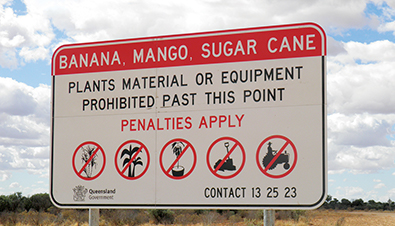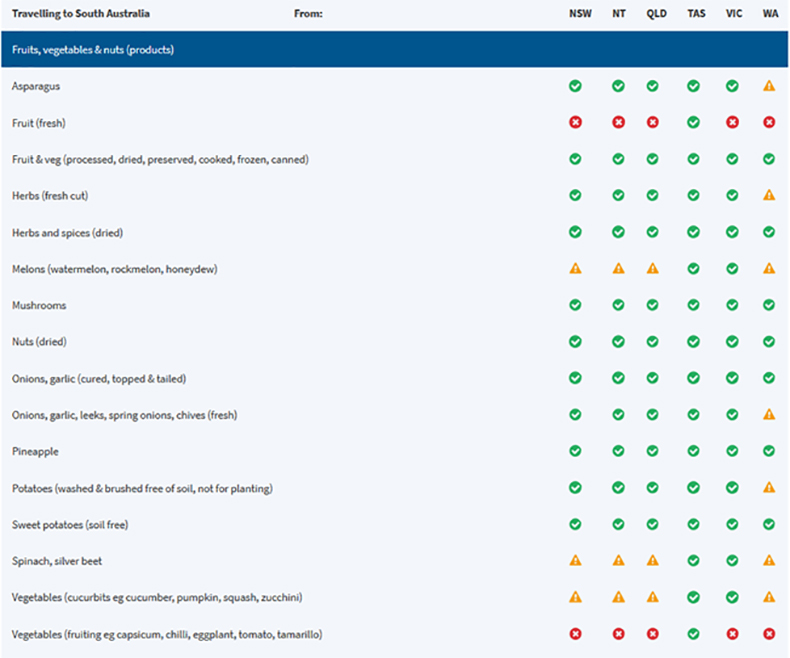Read the latest information on
Foot-and-mouth disease
 While the rules are relaxing for people moving around Australia between different states and territories in relation to COVID-19, the rules remain for the movement of plants and plant products between states and territories to prevent the movement of pests and diseases.
While the rules are relaxing for people moving around Australia between different states and territories in relation to COVID-19, the rules remain for the movement of plants and plant products between states and territories to prevent the movement of pests and diseases.
Rod Turner, Chair of the Subcommittee on Domestic Quarantine and Market Access, says that inspectors at border checkpoints on main roads between states and at airports are still looking for fruit and veggies that can’t be moved between states.
“Just be aware that if you take fruit and veggies with you, you may need to surrender it in amnesty bins at or before the checkpoints,” warned Rod.
“In particular, South Australia still has zero-tolerance for people turning up at the border carrying fruit and veg and you will be fined if you are carrying anything you shouldn’t be.”
“If you are self-catering or camping, you might be tempted to pack all your food before you go. But remember not to pack fruit and veg in your car or caravan if you know you will soon need to cross a state border. You may be disappointed if you have to surrender it because it’s banned.”
“Only buy what you need for the time you will be in the area, or that you know you will be able to take with you.”
It’s generally better to go shopping locally once you arrive at your destination. You’ll not only avoid a fine but also support local businesses in the Empty Esky campaign to support bushfire recovery.
Rod advises that there are biosecurity or quarantine zones within states and territories too – the equivalent of COVID-19 hotspots if you like – where particular pests or diseases are present, but we are trying to limit their spread to other areas.
“Examples are the citrus red mite in NSW, phylloxera in parts of NSW and Victoria, and tomato potato psyllid near Perth, WA. Other offenders are Queensland fruit flies, present in the east coast states and NT, but not SA, WA or Tasmania, and Mediterranean fruit fly which is present only in WA.”
Other zones are ‘exclusion zones’ that are free from particular pests or diseases.
“Particular crops are grown in these areas and we want to keep pests and diseases out. Examples are the potato growing zones in NSW, Victoria and WA.”
So before you pack and get out and about this holiday season, make sure you check the Australian Interstate Quarantine website for the Traveller’s Guide to see what you can and can’t safely take with you wherever you are going. Rules can change too, so check to make sure nothing has changed since you last looked.
Please pass on this important reminder to your interstate friends and family members.
Download the booklet Australian Interstate Quarantine: A traveller’s guide
Alternatively, go to the map on this page and click on the name of the state or territory you wish to travel to (ie the text, not the map). A list of commodities will be displayed and the state or territory of origin. For example, in the table below you’ll see that no fresh fruit may be taken into South Australia from NSW, NT, Queensland, Victoria or WA.

More information about biosecurity zones is available on the Australian Interstate Quarantine website.